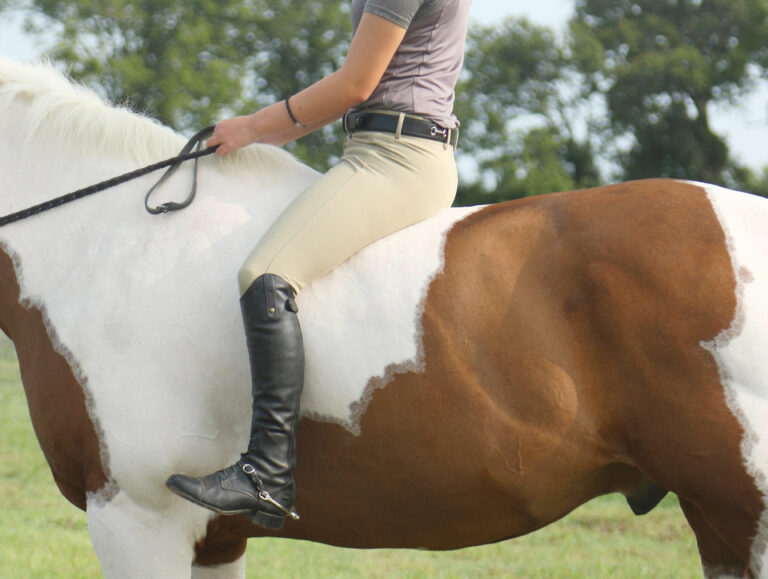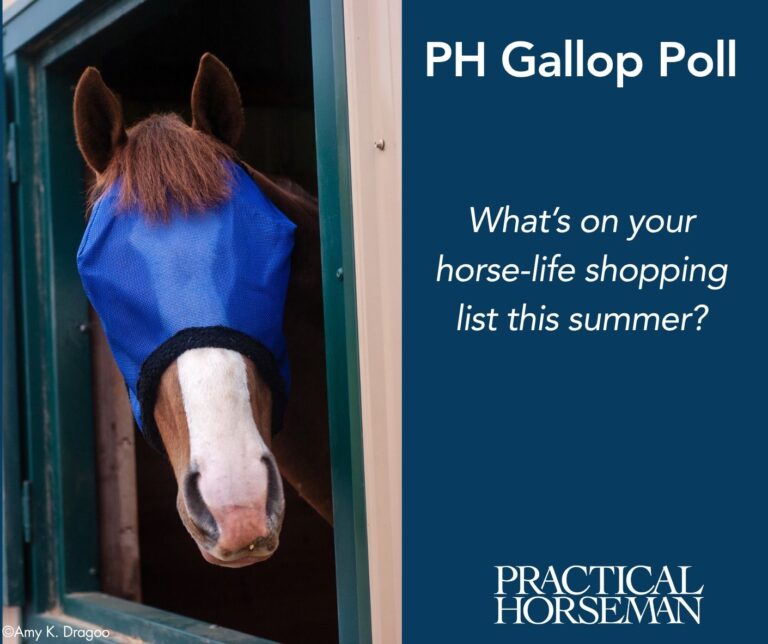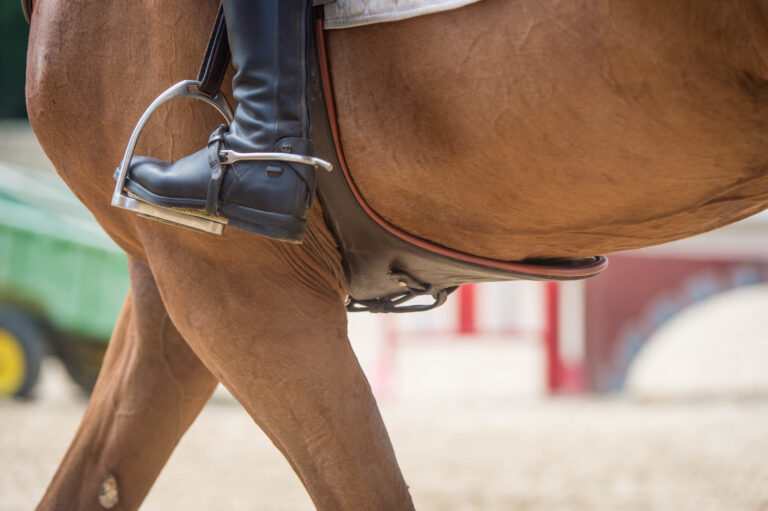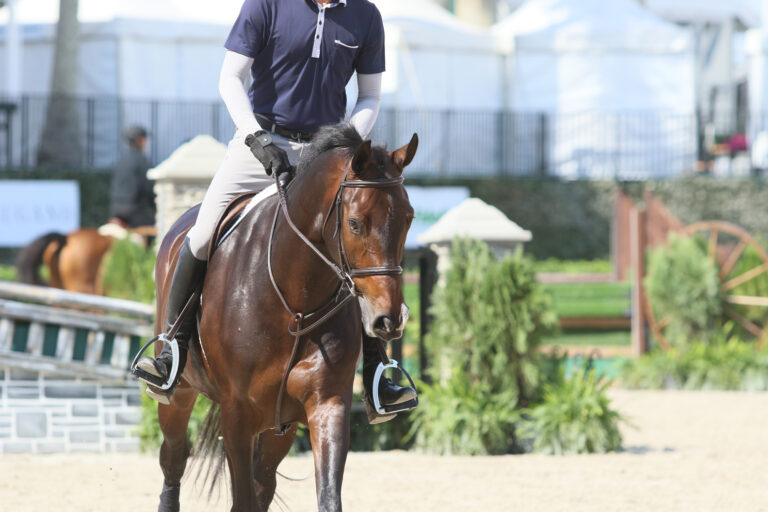 Roxanne Trunnell and Nice Touch at the 2014 World Equestrian Games | © Holly Jacobson
Roxanne Trunnell and Nice Touch at the 2014 World Equestrian Games | © Holly JacobsonAs the final notes of George Gershwin’s “An American in Paris” filled the air, 29-year-old Roxanne Trunnell, of Rowlett, Texas, began to enjoy what she and Nice Touch, her 19-year-old KWPN mare, had just accomplished: a freestyle performance in para-dressage at the 2014 Alltech FEI World Equestrian Games in Caen, France. They had earned their way into the event with solid earlier efforts in both the Grade 1a individual and team tests. Now their ride set to music—the mare’s swan song in the dressage arena—received a score of 62.40 percent and placed them seventh overall. “It was such a great ending of a career for my girl,” Roxanne recalls.
Among the supporters and teammates waving American flags were Roxanne’s parents, Josette and Sid, and her aunt, Alicia Holmes. There was no hiding the pride they felt at the accomplishment of rider and horse. Five years earlier, Roxanne suffered a serious and mysterious illness—unidentified but likely viral in nature—that caused her brain to swell. For three weeks she was unconscious. “When I woke up from my coma, I was terrified I wasn’t going to ride again,” she says. She could not sit or stand.
Roxanne had started riding at age 2 as therapy after an illness—similar but far less severe than the devastating incident in 2009—left her with balance issues. When her mother learned that horseback riding could help, she found a vaulting program taught by Lindy Cogswell at Happy Horse Riding School in Burbank, Washington.
“It worked!” Roxanne remembers. “And once I sat in a saddle, it felt so natural to me that I never wanted to quit.” Eventually, she became involved in 4-H and Pony Club, where she enjoyed jumping and eventing. But the nuance and difficulty of dressage drew her in.
In 2003, Roxanne met Nice Touch (aka Touché) at Kari McClain’s Miari Stables in Olympia, Washington. “I fell in love with her cute personality, and we’ve been together ever since,” Roxanne says. Kari, along with trainers Diane Royce and Heather O’Keefe, helped polish Touché and Roxanne for the show ring. Competing at Fourth Level and schooling Prix St. Georges, the pair earned the U.S. Dressage Federation bronze medal and started on the silver.
Then illness turned Roxanne’s world upside down.
“I really don’t believe she would have ever left that bed if it wasn’t for this horse,” says her aunt Alicia. “I remember her dad carrying her out to the barn just to put her hands on Touché.”
“I was determined to try to ride even if it meant I would fail,” Roxanne says. Her father left his job to care for her and oversee her rehabilitation. He improvised a harness out of a flak jacket, built a ramp and mounting block from scrap wood and ran zip lines across the yard to hold her upright as she learned to walk again. When the time was right, she started riding a pony on a longe line. In December 2011, with assistance, she climbed onto Touché’s back.
As she slowly made progress, Roxanne yearned to compete again. She had heard about para-dressage but wasn’t convinced it was for her. The sport offers tests at five grades—beginning at 1a, most impaired—performed at the walk. Judges evaluate rhythm, correct frame, bend, straightness, impulsion and the quality of the gaits and movements. Only the rider’s position is exempt.
Roxanne decided to give it a try after attending a national symposium and connecting with para-dressage athletes and coaches. When she scored well in a qualifier in California, the Trunnells decided to relocate to Texas so their daughter could work with trainer Kai Handt.
Meanwhile, Roxanne’s brother Josh launched fund-raising efforts to help pay the costs of getting his sister and her horse to a CPEDI*** qualifier in Florida and then the USEF Para-Equestrian National Selection Trials in Gladstone, New Jersey. That’s where Roxanne and Touché earned their spot on the U.S. WEG team.
Grateful to all who have supported her, Roxanne’s indebtedness to her equine partner is unmistakable: “My most memorable moments at WEG were just hanging out at the barn with Touché,” she says. “It’s lame, I know. But the horses do so much for their riders, I think they should be spoiled and showered with as much love as possible.”
This article originally appeared in the February 2015 issue of Practical Horseman.











